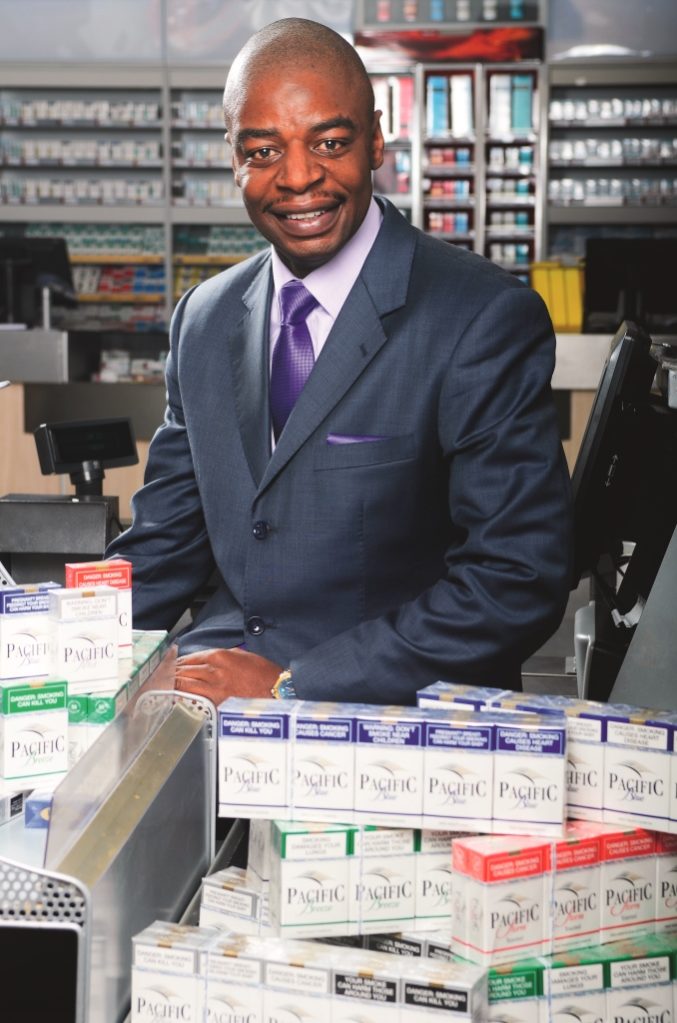Adam Molai is a tobacco entrepreneur. The Zimbabwean born-and-bred entrepreneur is the co-owner and executive chairman of Savanna Tobacco who has enjoyed a life that has rarely been dull. He studied in Canada and Britain; he did his articles in accounting, owned and operated garages, a stationery and copy shop, as well as a chicken farm. It was a friend who introduced this non-smoker to the tobacco industry.
As the land reform program of President Robert Mugabe forced out large-scale white commercial farmers, in favor of black workers, Molai realized that it would be a gamble going into business with his white friend when he founded the Zimbabwe Tobacco Growing Company. Now he is the director along with his wife. In 2002, he acquired a tobacco threshing plant with some partners. It did not make sense to Molai and his partners that the plant was being grown in Zimbabwe, shipped overseas and the finished product imported into the country. He decided to do something about it.
Savanna Tobacco launched its first brand of cigarettes in 2004. Two years later, it had brought in high-speed manufacturing equipment and won both bronze and silver at an international brand competition. By 2008/2009, the company had grabbed the largest share of the Zimbabwean market and was importing new and specialized equipment. This was at a time when Zimbabwe could not import paper from Germany to print its money.

Cigarette Packer,1st of its kind in Africa
“We felt proud to be heads and shoulders with the big multi-nationals,” boasts Molai.
Loading...
The company introduced the contract system to the country as a way to help boost the tobacco industry. It worked like this: there is an agreement between the contractor and the grower; the contractor supplies the grower with all the inputs and the grower grows, reaps, cures and delivers the crop. The grower receives preferential interest rates and the contractor is guaranteed a crop. This system got around the problem of finding finance to buy tobacco inputs in US dollars. Although the contract system is still operational, alongside the auctions, Savanna pulled out when they felt the financial system was capable of providing finance. This year a commercial bank in Zimbabwe—MBCA Bank Limited—made available $65 million worth of lines of credit to support the industry.
Zimbabwe is the largest producer of tobacco in Africa. It exports to China, South Africa, Belgium, the United Kingdom, Indonesia and Germany and imports some tobacco from Malawi and South Africa.
China is the biggest producer of cigarettes and has the largest tobacco company in the world. It started using the Zimbabwean leaf in the 1980s and in 2005 Tian Ze Tobacco Company was established in Zimbabwe. Chinese companies came in and financed small-scale farmers under the contract system. Their presence has since increased the price of tobacco per kilogram. This year, the average price increased to $3.67.
Molai feels that China has played its role in the growth of the industry but that the relationship with China needs to be symbiotic and not perpetuate the mere exportation of raw tobacco and jobs.
“China protects their market more than anything else. We’re running with people that are already at the half-way line… You’ll never win, you have no chance,” he says.
Around 100 countries produce tobacco; the major producers are China, India, Brazil, the United States, Turkey, Zimbabwe, Zambia and Malawi.
Zimbabwe has some domestic issues that were raised at the National Tobacco Workshop held last year. These included the poor conditions of amenities and accommodation at the auction floors, constant power cuts, deforestation, the limited credit and poor infrastructure.
The industry however does not have to worry about tight regulation in the marketing of cigarettes. The global legislation on tobacco has decreased global consumption over the years. The World Health Organization’s Framework Convention on Tobacco Control—which is “the international health treaty that guides national efforts to counter the tobacco epidemic…”—now has 168 signatories. Zimbabwe is not one of them.
“I make no apologies for it,” says Molai, “we are strong marketers.”
Loading...
